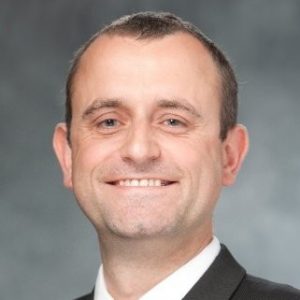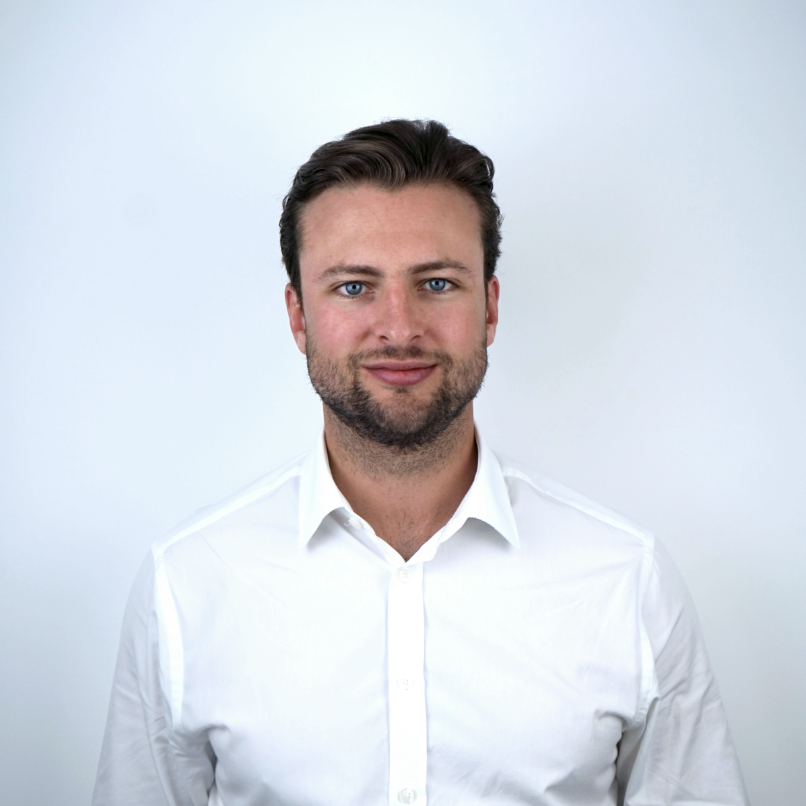Interview with Phil Le-Brun: AWS Director of Enterprise Strategy
10 June 2020 by Will Setterfield
 Phil Le-Brun is a Director of Enterprise Strategy at AWS, formerly the Corporate Vice President of Global Technology Development at McDonald’s Corporation. He was recognised in 2018 and 2019 as one of the top 100 CIOs in the UK.
Phil Le-Brun is a Director of Enterprise Strategy at AWS, formerly the Corporate Vice President of Global Technology Development at McDonald’s Corporation. He was recognised in 2018 and 2019 as one of the top 100 CIOs in the UK.
In Phil’s 23 years at McDonald’s, he played a leading role in the business’s transformation into a digitally-enabled company, and was ultimately accountable for the architecting, development and support of all global restaurant and digital platforms across 38,000 restaurants, supporting over 70m transactions daily. Now at AWS, he spends his time helping customers achieve their own potential through cultural and technological changes.
I interviewed Phil (virtually of course!) to find out what he’s learnt from his time at McDonald’s, his current role at AWS, and what he thinks businesses might learn from the Covid-19 crisis.
“No plan survives contact with the enemy”
Phil played a key role in the digitalisation of McDonald’s, initially observing the company transform, but ultimately enabling it to do so. I was keen to know his reflections on his twenty-three years at the company.
“We went from a restaurant business where, if the technology failed, the business would still run – you’d get your calculators out – to a business where, if the technology failed, you’d shut your doors.”
He remembers this time as exciting, but, like any transformation, immensely challenging.
“The old adage of “no plan survives contact with the enemy” certainly applies to software. In the early days there was a lot of towards some of our initiatives.
Really though, a lot of this derived from other motivations – like fear, uncertainty, doubt, lack of trust – things that are addressable if you really understand them.”
It’s sometimes better to have “ok” technology
I wondered what Phil had taken away from coming up against these challenges.
“The biggest takeaway for me was the human side of it. You still see a lot of large initiatives fail because they’re treated as a technology initiative, when they should be seen primarily as an initiative to support change in human behaviour.
It’s better to have technology that’s “sort of ok”, that’s used by people, than to have the best architecture and best technology that isn’t used. Sounds obvious, yet this mistake is made time and time again.”
If he had the opportunity to go back, would he have done anything differently during his time at the company?
“Oh, many things. In some ways I wish I’d pushed harder and faster. We were very tentative because no one had done this before, especially at the scale we were operating at.”
What makes a good leader?
So, what advice does Phil have for Technology leaders now? He is a major subscriber to the theory of servant leadership, describing it as “the singular most important characteristic of a leader.” However, he doesn’t think it’s always done right.
“There was a McKinsey study on this which was really insightful. Many leaders think they are servant leaders. But when you ask those leaders’ team members, a significant proportion of them don’t think they have autonomy. You have to ensure you relinquish decision-making where necessary, and teach people to take autonomy and use it.”
He also believes that this isn’t a style which works in every situation.
“The only thing I’d say is there is a balance to it. In a crisis, for example? You’re not going to act like a servant leader. You’re going to be very decisive.”
And what’s the best piece of advice someone has ever given him?
“A colleague once told me “The only person responsible for your P&L is you.” And, what she meant by that was, as much as an organisation invests in their people, ultimately others aren’t going to be the ones educating you. So, what I take from that is a very active approach to my personal development.
“The other piece of advice was: “Don’t screw up!” but that’s not as interesting…”
“How can I help our customers not make the same mistakes I made?”
Phil has been at AWS for 9 months now. I wondered how he was finding the role.
“I’m part of a small team called “Enterprise Strategy”. The majority of our time is spent with customers. My value is asking the question: “How can I help our customers learn faster and not repeat mistakes others, including myself, have made?”.
One of his key passions has been raising the technology IQ at a senior leadership level.
“You would never find a CEO who says “I don’t understand finance, that’s why I’ve got a CFO” – but you find that a lot with technology.
Everyone sitting at board-level must have a basic understanding of technology. It’s not necessarily understanding all the details, but it’s knowing the questions to ask.”
Covid-19 and innovation
Of course, the impact of Covid-19 has led many businesses to employ virtual working at a pace and scale previously unimagined. I asked Phil for his predictions on how this crisis will change business’s use of technology in the long term.
“I think it’s important to learn the lessons from this; why is it so many companies have been able to move so fast on decisions that would have taken longer in the past?”
Phil ultimately drew a strong parallel with the importance of business agility.
“I think underlying all of this, is the Agile organisation. There was an interesting book released called “It’s Not the Big That Eat the Small…It’s the Fast That Eat the Slow” (Jennings & Haughton, 2000).
Getting things into the hands of customers – or citizens, as the case may be – and adapting quickly is the change that I hope companies see as most critical to their business health.”
And outside of this? Phil also sees potential benefits to be gained on a societal level, above and beyond his professional role.
“As a citizen, I’m looking at how companies are reacting and working together across traditional competitive lines.
I think we could see some massive improvements in the political, social, and economic wellbeing of countries if we just work a little bit differently, like we’re being forced to today.”
For more information:

Will Setterfield
Consultant